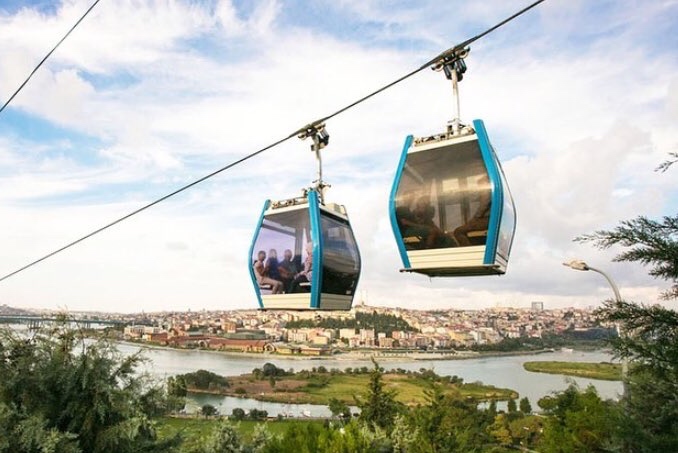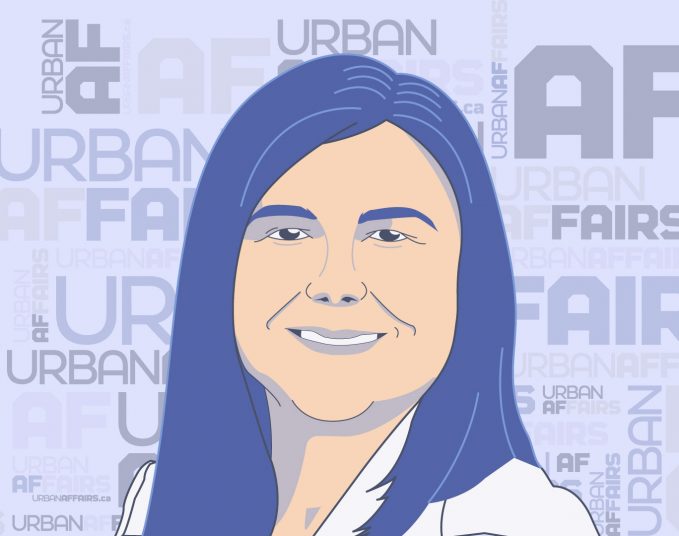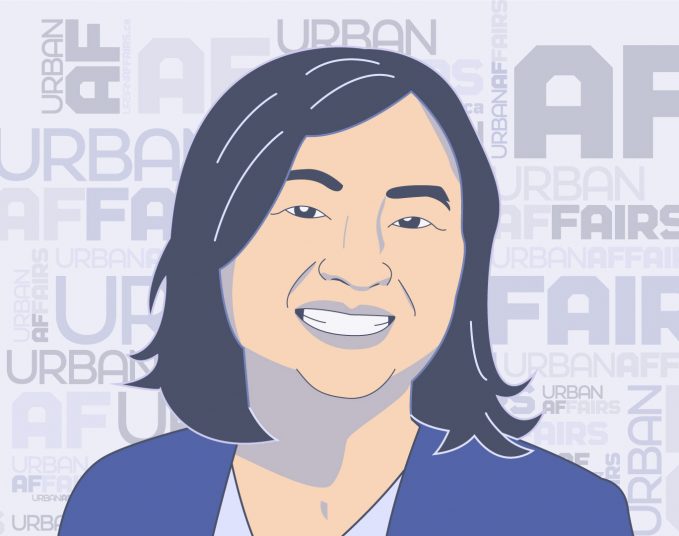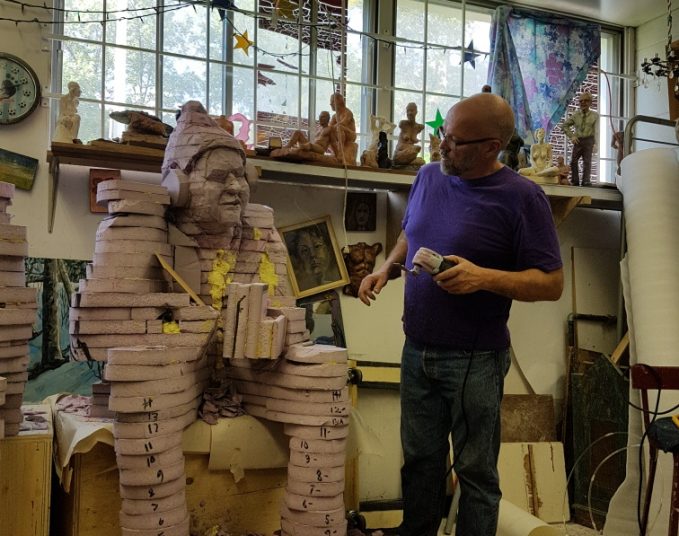Trying to convince Edmontonians that a 2.5-kilometre gondola ropeway is a good idea is difficult enough. There’s the contentious issue of lands in Rossdale with deep Indigenous historical connections. There are the logistical and environmental concerns of linking Old Strathcona to downtown via cables, with a dip down into the river valley. And, well, there’s the whole idea that it’s a gondola.
But, for Prairie Sky Gondola (PSG), imagine having your brass pleading their case to the City of Edmonton’s Executive Committee while things go sideways on the other side of town.
That’s what happened Wednesday. PSG needs the city to OK a lease agreement for the planned route; it says it can’t do the work that’s to come, from engineering to consultation with the Indigenous community, unless that first step is made. While they spoke, across the river, another private transportation firm, TransEd, told the media that, wow, 18 concrete piers supporting the raised portion of the Valley Line LRT have cracked. The opening of the Valley Line LRT has been kicked down the (rail) road indefinitely.
Over the lunch break, Mayor Amarjeet Sohi walked down the hall to deliver some pre-packaged indignation for the gathered media. He quickly shifted from gondola to LRT.
“I hear you and share your anger,” he said. “It’s frustrating and deeply disappointing.”
He stressed how the City had no real oversight on the Valley Line, how TransEd is a private company that’s simply delivering a product to turn over to the City. And, then, he pledged that the City would look at how it enters into public-private partnerships, that the whole system would be examined.
Of course, one of the first questions posed to the mayor: Would the PSG project be part of that?
No. In the mayor’s eyes, the PSG ropeway is an entirely private endeavour. It is not, in his eyes, a public-private partnership.
But, in the wake of the TransEd mess, will the public see it that way? After all, PSG officials told the Committee that there would be some integration with the transit system. There would be separate fares, but there could be shared use of transit cards. After all, PSG needs to know where the riders are coming from to police its tiered fare system.
Jeffrey Hansen-Carlson, PSG’s CEO and president, said that in-town users, who would be using the gondola for commutes, would be charged $2 a ride. But out-of-town users looking for an experiential ride across the river valley, they’d be paying $25 each.
That’s right, more than 12 times the difference between in-towners and out-of-towners. Chief strategy officer Bob Black said PSG will install speakers in the cabs, where riders will hear about the Indigenous history in the region. It’s clear that there will be a tourism component to this.
Proponents of the plan made sure to mention other cities that were building or had built gondolas. Mexico City! Paris! La Paz! Bogota! The most suitable comparable may be the The Portland Aerial Tram. According to City of Portland stats, it transports 9,000 rides on the average weekday, with 15 per cent of those rides coming from tourists.
“We do not underestimate there is still a lot to be done,” said Black. “Our team is willing to invest millions of dollars in what we know will be a multi-jurisdictional regulatory process.”
“Before we make that investment, we know we need a path forward,” he continued. “There’s a lot of work there, and we take it all very, very seriously.”
And then there’s the thorny issue of Rossdale lands that are seen as sacred by the Indigenous communities. The area has long been home to gatherings and rituals. It is where generations of people chose to cross the river, before their were bridges, ferries or… gondolas. There were anti-gondola petitioners who said that exploratory work shouldn’t even be undertaken, as it would disturb the resting places of their ancestors. Indigenous writer and advocate Emily Riddle said it was “horrifying” that so many speakers didn’t acknowledge the Indigenous history of the area. And she said she did not trust a process where a private business promises to engage with Indigenous communities, but only after the land lease is secured.
“This is not a transparent process,” Riddle said.
But archaeologist Cody Sharphead, who has been working for PSG, said initial indications are that there aren’t human remains near the old power plant or RE/MAX Field.
“I feel that, because our ancestors are buried nearby, First Nations people have more of a stake in this development,” said Sharphead. He pledged Indigenous archaeologists will continue to explore the area. “If there wasn’t a First Nations archaeologist involved, I wouldn’t support it.”
Sohi said if any burial grounds are found, it would turn his “make” vote into a “break” vote down the road.
Councillor Aaron Paquette wondered if the public will buy it. He said the public will likely not trust an archaelogical exploration that’s being run by a company that stands to benefit from negative findings.
“I have no doubt about your hearts. But the question the public will have is, ‘Is this an unbiased approach?’”
Or maybe the public will have a bigger question — how does the gondola duck quack differently than the LRT duck?
Savvy AF. Blunt AF. Edmonton AF.




